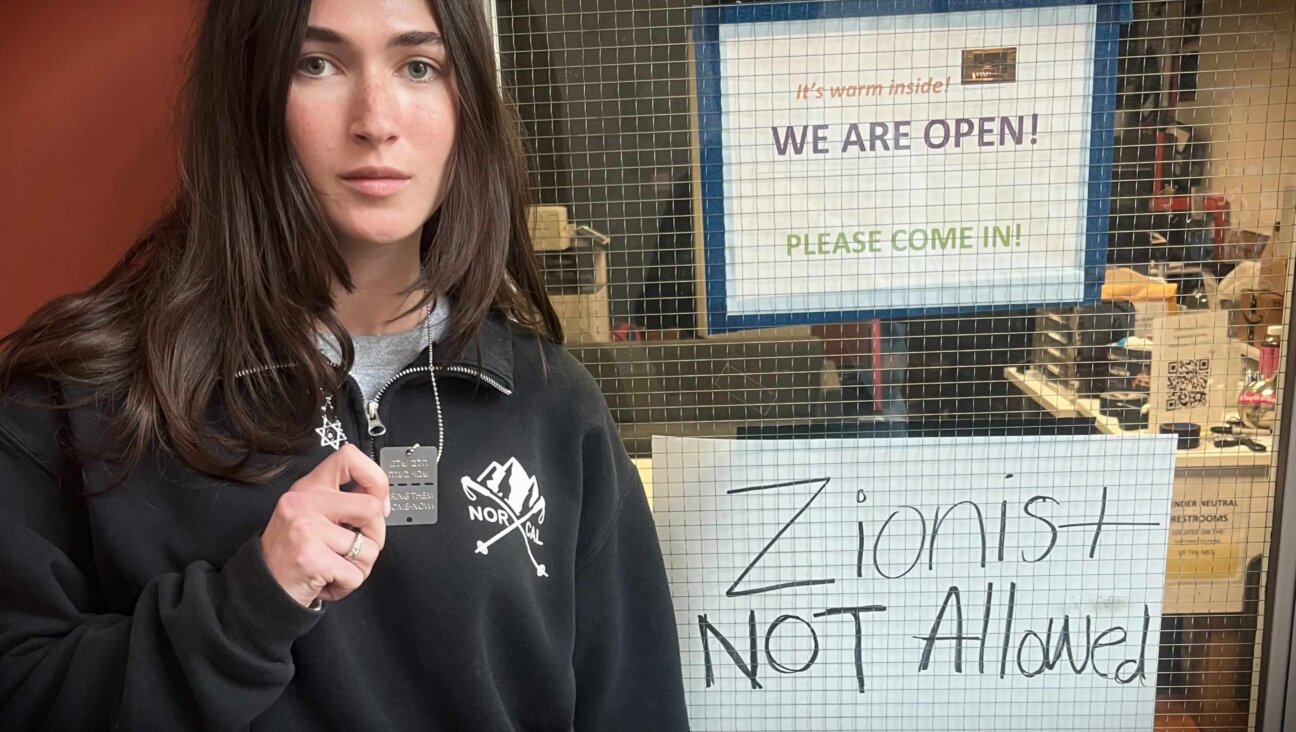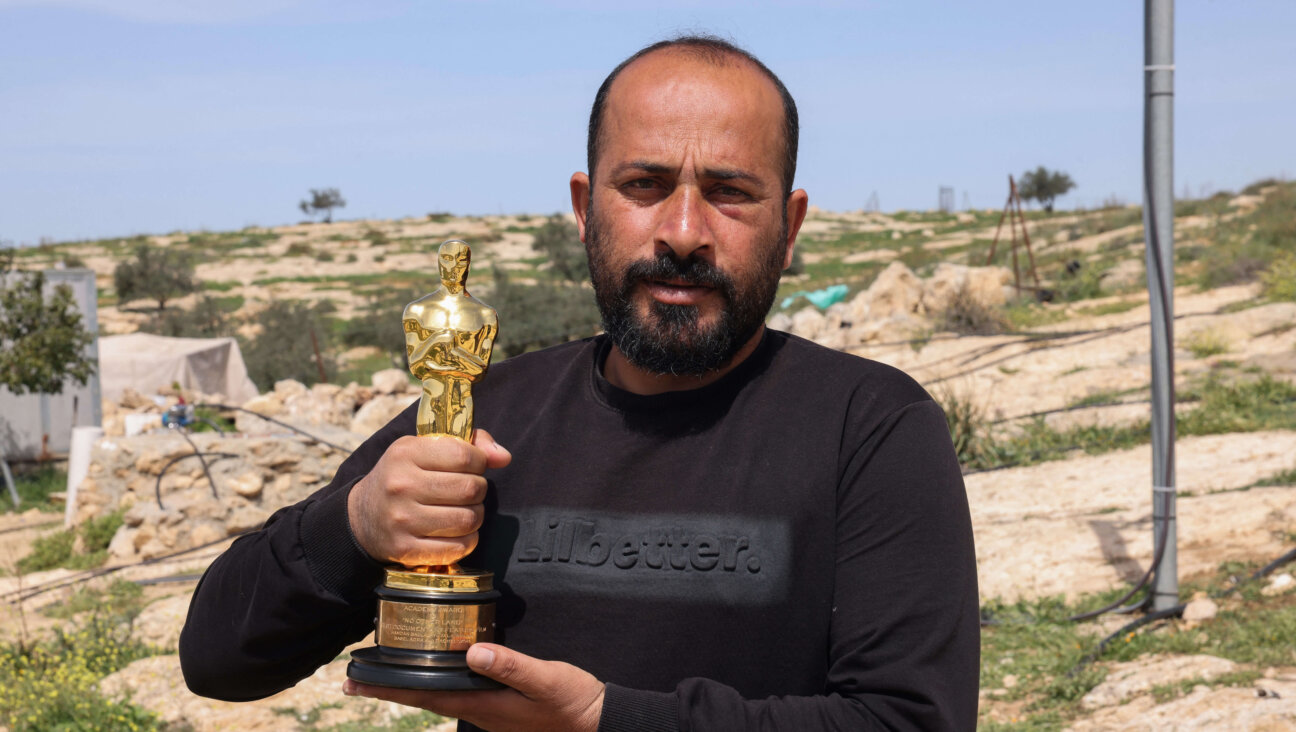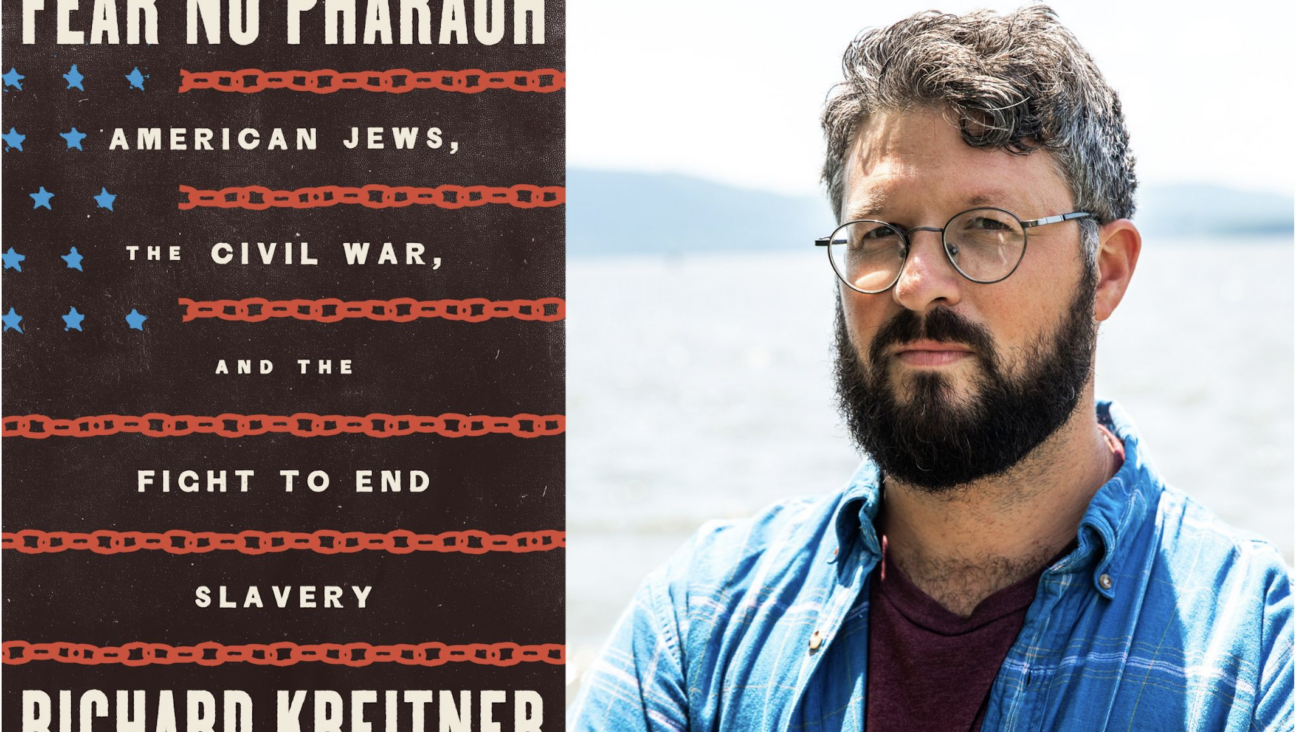Gershom Scholem’s Life, in His Own Words
Lamentations of Youth: The Diaries of Gershom Scholem, 1913-1919
By Gershom Scholem
Edited and translated by Anthony David Skinner
The Belknap Press of Harvard University Press, 384 pages, $39.95.
In the early 1970s, Vienna-born writer and memoirist Jakov Lind returned to Israel after experiencing a mystical vision “on a very fine day about 3 in the afternoon, standing under the pines behind the Mirador, my small summer home in D.” In “The Trip to Jerusalem,” the book he wrote recounting his prodigal return, Lind recalls his audience with a man he simply calls the Professor: “a Jewish mystic in the disguise of a German scholar, born in Berlin,” who “came here in 1923, as a Zionist and to study Kabbalah.” Sitting in the same chair where Sartre, Graves, Grass, Borges, Buber and Agnon had sat before him, Lind told the Professor “about LSD and the Khazars” and how he came to think that he was “an ex-anti-Semite and maybe not a Jew.” But the Professor merely smiled, because, as Lind puts it, “nothing is new under the sun.” “Jews are not spiritual,” the Professor tells him. “The Christians are. We are a practical people.”
The Professor, of course, is the late Gershom Scholem, dean of Jewish thought and scholarship, and Lind’s automatic reverence is familiar, since Scholem, it still seems to us today, emerged fully formed in 1941 as an authority on the ostracized subject of Jewish mysticism and Kabbalah (“Major Trends in Jewish Mysticism”). “Lamentations of Youth,” the recently published selection of Scholem’s early diaries — encompassing the years 1913 to 1919 — does much to humanize this intimidating and paradoxical figure, the scholar of practical mysticism, or Jewish gnosis.
In the first of these pages, he is not yet the Berlin Gaon of later hagiographies, but Gerhard, a 16-year-old bookworm with a photographic memory, a student of history and an admirer of Kierkegaard, Buber and Strindberg who longs to break out of his family’s printing business and into the intellectual world: an ambitious and combative anarchist-Zionist struggling to find his way through the perplexing profusion of Jewish organizations, orientations and philosophies — or, as he later came to call himself, “a post-assimilatory Jew.”
Scholem, a fourth-generation Berliner, was the fourth and youngest son born to a family of tradesmen originally from the Orthodox Jewish communities of Poznan and Silesia. His righteous indignation at the self-deception of German Jews who believed in the possibility of true assimilation while socially living entirely within their milieu, his desire to learn Semitic languages and his subsequent conversion to Zionism, all epitomized the longing of his generation for something more authentic than what they saw as the hypocrisies of the Reform movement. In the face of family scorn and German cultural antisemitism, Scholem sought a living tradition grounded in literacy and learning, while his brother Werner — who died in Buchenwald in 1940 — filled that void with left communism, and their eldest brother, Reinhold, declared himself a German nationalist even after World War II.
In his memoir “From Berlin to Jerusalem” — a book to which this diary can be seen as the painful complement — Scholem remembers that during Passover week in his parents’ home, “bread and matzos were next to each other in two breadbaskets” and even “on the most solemn Jewish holiday, Yom Kippur, which was still observed as a fast day by the overwhelming majority,” his father “went to work and no one thought of fasting.” Though the Scholems celebrated Christmas with an evergreen tree and a rendition of “Silent Night,” they recognized their youngest son’s dissatisfaction and placed beneath the tree a gift for him: a portrait of Theodor Herzl.
Thus at nearly 6 feet, the young Scholem grew tall on a diet of German historical literature — Friedrich Schlosser’s 19-volume “Weltgeschichte,” Heinrich Graetz’s “Geschichte der Juden” and the four-volume “Römische Geschichte” by Theodor Mommsen — supplemented by the Zionist writings of Moses Hess, Leon Pinsker, Max Nordau and Nathan Birnbaum. In 1912 he joined the Zionist youth group Jung Juda, and in 1913, briefly and only partly as an act of rebellion, the Orthodox Agudat Yisrael. Because Talmud had been consistently rejected as a course of study in the schools sponsored by the Jewish community of Berlin, Scholem and his few fellow students were forced to find a private tutor — an intellectual experience that laid the foundation of Scholem’s enthusiasm for rabbinic scholarship and taught him the rudiments of what later became his career. As he was interested in the intellectual spirit of the Torah, not in the letter of its law, so, too, following Ahad Ha’am, his Zionist yearnings had less to do with the immediate aims of politics — the establishment of a Jewish state — than with the need for a tradition in which his self-discovery could take place and a language through which this transformation could express itself. It was in the recorded commentaries of the Talmud, not in the findings of the Wissenschaft des Judentums, that he discovered the roots of an ancient dialogue — an unswerving and detailed discussion of life in all its aspects — that did not, or could not, exist in prewar Germany.
Scholem was among those Zionists opposed to the war, but when, in 1915, he prepared a letter to protest its association with Zionism in the Jüdische Rundschau, the letter was found and he was expelled just a year shy of graduation. He was able to take his exams, however, and, through an unpublicized loophole, attended the University of Berlin, where he studied mathematics until Jewish scholarship took precedence. In July 1915 he first met Walter Benjamin, and in the spring of 1916 Martin Buber, who published Scholem’s first articles in Der Jude. In 1916, Scholem also met Kafka’s fiancee, Felice Bauer, while both were involved with the Jüdisches Volksheim, the Jewish community center in Berlin. Thus in traveling through Germany and navigating the social circles of the assimilated, Scholem met a wide variety of young men and women who were all, in their own ways, struggling with their Jewishness. His empathy for their nostalgia and confusion, which often ended in political extremes or personal excess, convinced him that his contribution lay in scholarship, not directly in power or politics, as books would always be better than leaders at guiding. Though he tried not to proselytize, Scholem did inevitably pity those who did not end up, as he put it, in “Eretz Yisrael.” Of a certain acquaintance, he wrote in his memoir: “I regard it as one of the great losses to the building of Israel that because of her personal circumstances — she married a decided non-Zionist, the secondhand book dealer Ernst Weil — this extraordinary woman never came to settle in Eretz Yisrael.”
Shortly before his conscription into the army in the summer of 1917, Scholem argued with his father and was kicked out of the house. This event, which began a period of academic wandering through the cities of Jena, Berne, Munich and Frankfurt — and culminated in his immigration to Palestine in 1923 — also introduced Scholem to the people who would remain important to him for the rest of his life: Benjamin, Agnon, Zalman Rubashov (later Zalman Shazar, third president of Israel). Though he came to reject Buber’s Hasidism, it was Buber’s precedent in the scholarship of folklore, combined with the vehement dismissal of Jewish historians, that first inspired Scholem to pursue the study of Kabbalah intensively for the next 20 years — resulting in a body of work that ironically has become as mythologized and exploited as the legends he sought to disprove.
Though understandably sporadic and fanatic in turns — “Kierkegaard is a Jew!” — this diary’s main importance lies in its anthropology, the gentle demystification of this romanticized scholar, not by transforming God into man, but in doing simply what Scholem himself had done for the Jewish tradition: the compilation of a library, the translation of texts, the establishment of a timeline and genealogy, and the creation of a context by which the perhaps-unknowable mysteries of the past could once again become susceptible to history.
Daniel Elkind is a writer and translator who lives in Brooklyn.
The Forward is free to read, but it isn’t free to produce

I hope you appreciated this article. Before you go, I’d like to ask you to please support the Forward.
At a time when other newsrooms are closing or cutting back, the Forward has removed its paywall and invested additional resources to report on the ground from Israel and around the U.S. on the impact of the war, rising antisemitism and polarized discourse.
Readers like you make it all possible. We’ve started our Passover Fundraising Drive, and we need 1,800 readers like you to step up to support the Forward by April 21. Members of the Forward board are even matching the first 1,000 gifts, up to $70,000.
This is a great time to support independent Jewish journalism, because every dollar goes twice as far.
— Rachel Fishman Feddersen, Publisher and CEO
2X match on all Passover gifts!
Most Popular
- 1

Film & TV What Gal Gadot has said about the Israeli-Palestinian conflict
- 2

News A Jewish Republican and Muslim Democrat are suddenly in a tight race for a special seat in Congress
- 3

Opinion Is this new documentary giving voice to American Jewish anguish — or simply stoking fear?
- 4

Fast Forward Trump’s antisemitism chief shares ‘Jew card’ post from white supremacist
In Case You Missed It
-

Opinion Think every Palestinian in Gaza is Hamas? This week’s protests prove you’re wrong
-

Opinion A Palestinian Oscar-winner’s arrest shocked the world. For these Jewish activists, it was terrifyingly normal
-

Opinion In the Trump administration and Israel, a grotesque display of virility coupled with a loss of humanity
-

Fast Forward Cornell’s new Jewish president says he is ‘very comfortable with where Cornell is currently’
-
Shop the Forward Store
100% of profits support our journalism
Republish This Story
Please read before republishing
We’re happy to make this story available to republish for free, unless it originated with JTA, Haaretz or another publication (as indicated on the article) and as long as you follow our guidelines.
You must comply with the following:
- Credit the Forward
- Retain our pixel
- Preserve our canonical link in Google search
- Add a noindex tag in Google search
See our full guidelines for more information, and this guide for detail about canonical URLs.
To republish, copy the HTML by clicking on the yellow button to the right; it includes our tracking pixel, all paragraph styles and hyperlinks, the author byline and credit to the Forward. It does not include images; to avoid copyright violations, you must add them manually, following our guidelines. Please email us at [email protected], subject line “republish,” with any questions or to let us know what stories you’re picking up.















